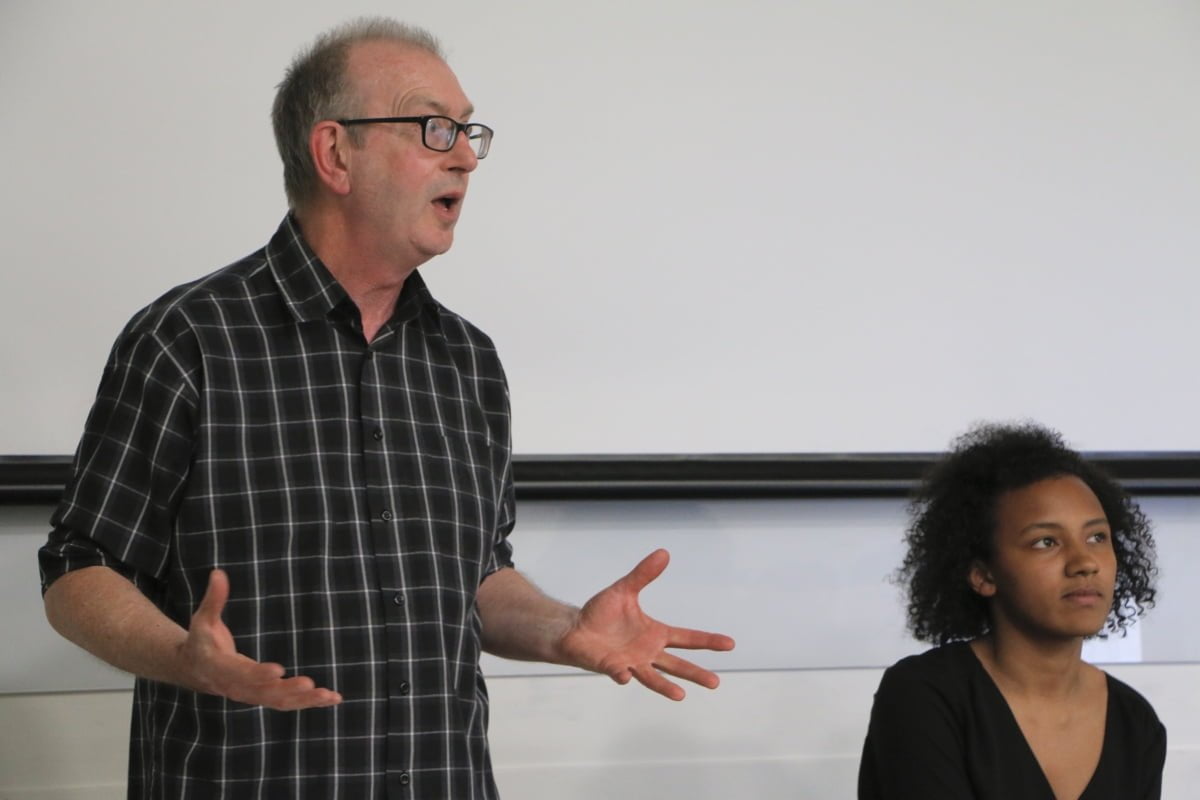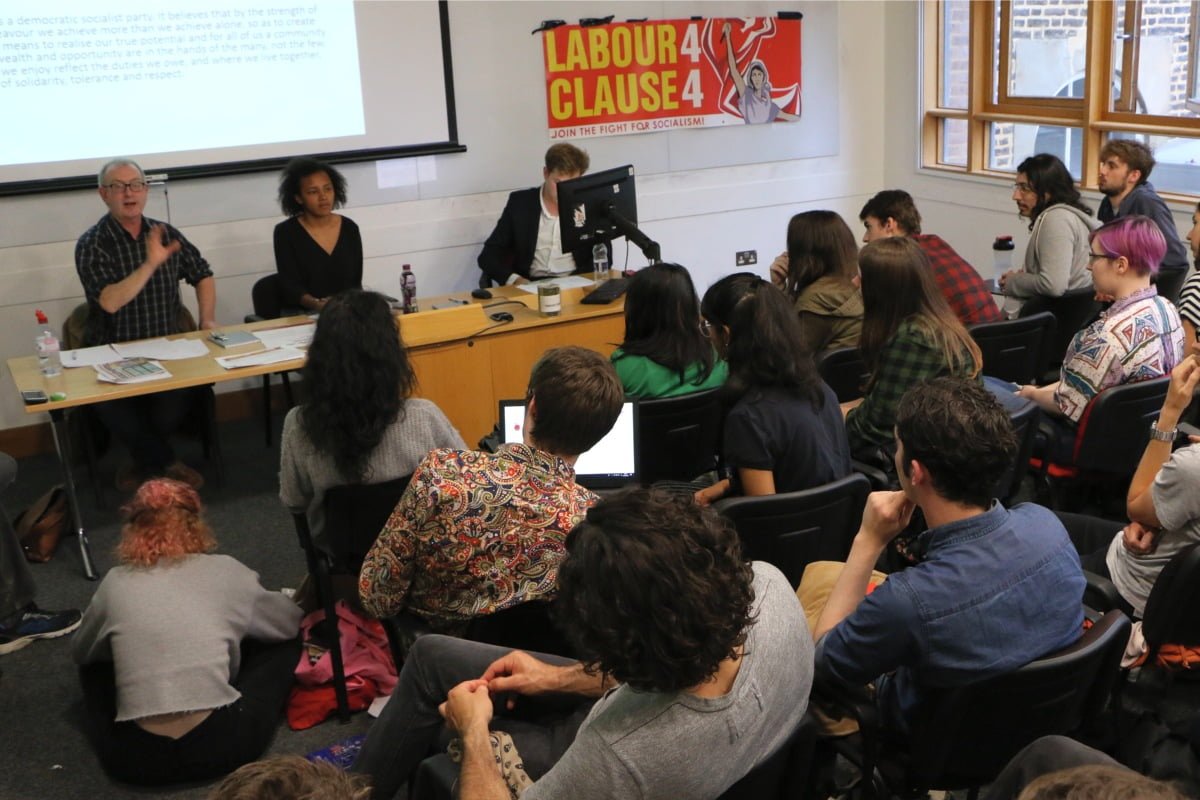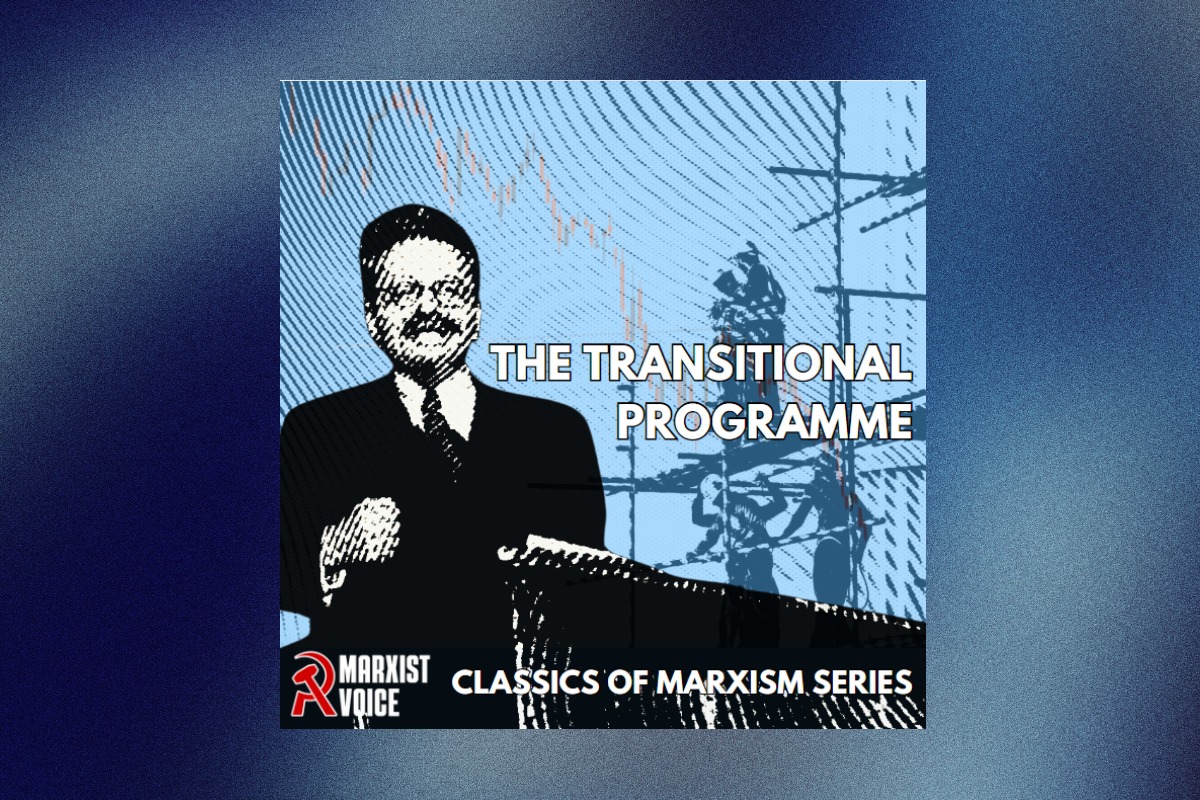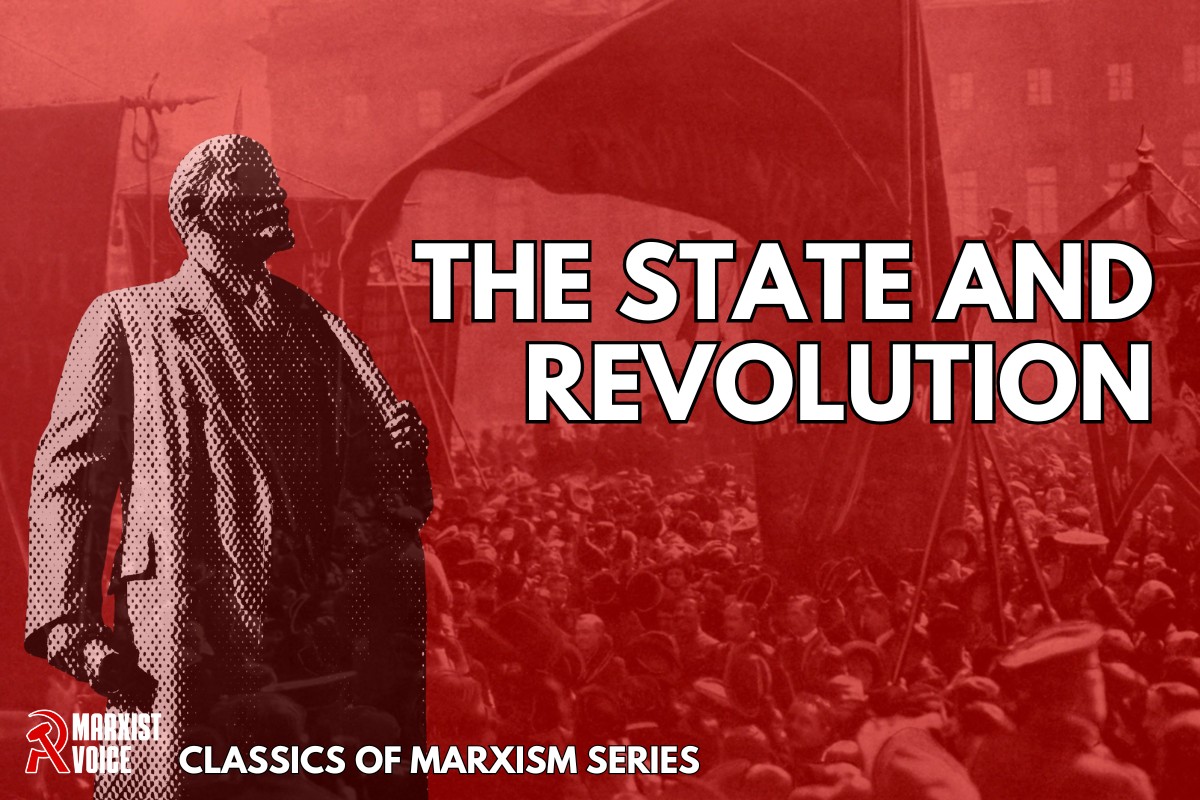In this video from a recent SOAS Marxist society event, Rob Sewell – national co-ordinator of the Labour4Clause4 campaign – discusses the importance of nationalisation, common ownership, and socialist policies.
On Monday 4th June, a discussion was held at SOAS university in London on the topic of Clause 4 – Labour’s historic commitment to common ownership and socialist aims.
The meeting was hosted by SOAS Labour and Marxist societies.
The main speakers were Rob Sewell, the Labour4Clause4 campaign coordinator, and councillor William Pimlott, the youngest in the City of London corporation. The meeting was chaired by Fiona Lali, president of the SOAS Marxist Society.
The meeting was well attended, with members of both societies present, along with many newcomers interested in the campaign and the idea of transforming the Labour Party. This shows that the importance of the question of Clause 4 and nationalisation for both young people and veterans of the Labour Party alike.
A brief introduction to the issue was given by both the speakers.
 Rob Sewell talked about the importance and relevance of Clause 4 for the future of the Labour Party, explaining how privatisation and the market had failed, and how a Corbyn Labour government would face sabotage from big business from day one.
Rob Sewell talked about the importance and relevance of Clause 4 for the future of the Labour Party, explaining how privatisation and the market had failed, and how a Corbyn Labour government would face sabotage from big business from day one.
Councillor William Pimlott acknowledged the importance of Labour’s previous socialist clause, emphasising how popular nationalisation has become today – particularly for the new generation.
The Labour councillor, however, questioned the phrasing of the original Clause 4 (which was abolished by Blair in 1995) and asked whether the wording – about “[securing] for the workers by hand or by brain the full fruits of their industry” – still had relevance today in an age of modern technology and automation.
The contributions and questions from the floor were all firmly in favour of reinstating Clause 4, providing strong, compelling arguments for why the question of nationalisation and common ownership in the interests of the working class is more relevant now than ever.
The points made in the discussion proved that the newly found interest in the Labour Party comes with a strong militant spirit and a thirst for radical ideas, in favour of the struggle for socialism.
These contributions also helped highlight that Clause 4 is only a step in the right direction, but is not ultimately enough to end the austerity and anarchy of the profit system. At the end of the day, any clause – no matter what its wording – is only words on paper. What workers and youth need are for these words to be accompanied by the implementation of policy and actions.
In his concluding remarks, the councillor backtracked on some of his initial assertions, conceding the points made from the audience about the need to restore the original Clause 4, which accurately summarises the interests of ordinary people today.
This shows the strength of the Labour4Clause4 campaign’s ideas and the arguments being put forward in favour of nationalisation and socialism.
This meeting was a great success for both raising awareness of the campaign among young people and students, and also debunking the arguments being put forward against reinstating Clause 4.
It is only through a bold socialist programme that Labour can change Britain for the many, and not the few.





